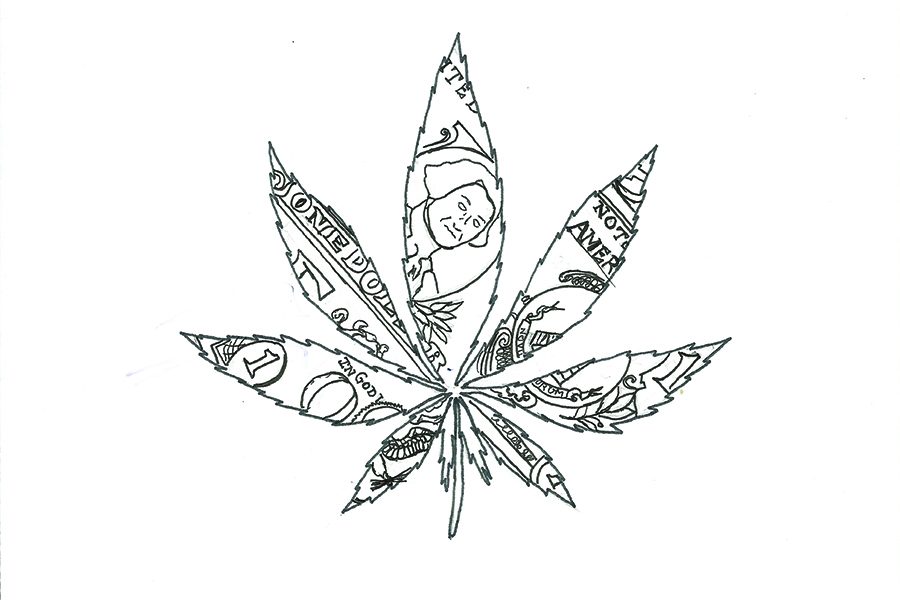Recreational marijuana legalization would benefit Louisiana economy, justice system
Louisiana Governor John Bel Edwards called for a special legislative session this month to address the state’s $304 million budget deficit. As legislators continue to grapple with the state’s gaping budget holes, one solution they should consider is the legalization of recreational marijuana.
Opponents of marijuana legalization argue that it would increase drug use, but there is little research to support such a claim. European countries which have legalized recreational marijuana use have seen minimal to no increase in adult marijuana use. A Brown University study conducted in 2011 found zero increase in adolescent use of marijuana after Rhode Island legalized medical marijuana.
In 2015, the Louisiana House of Representatives passed a bill legalizing medical marijuana, including the authorization of 10 dispensaries and one cultivation site. The bill limits access to people with glaucoma, people undergoing chemotherapy for cancer and people with spastic quadriplegia. It has yet to pass through the Senate, but if it does, it would take two years to be implemented. Louisiana’s budget deficit is more pressing than that, and the limited nature of the bill would not allow the state to fully benefit from the marijuana industry.
In reality, marijuana legalization would result in job growth and economic stimulation. Colorado, which legalized recreational marijuana in 2012, gained more than $140 million in marijuana-generated tax revenue last year. The Tax Foundation estimates that a mature marijuana market could produce up to $28 billion from taxes.
Marijuana created roughly 18,000 jobs in Colorado and added about $2.4 billion to the state’s economy in 2015. Industrial marijuana, or hemp, has the potential to become a massive industry. This non-ingestible form of the plant, often imported from Canada, can be used in food, construction and biomass energy production.
In addition to its economic benefits, marijuana legalization could severely reduce the impact of Louisiana’s system of mass incarceration. The majority of Louisiana’s inmates are nonviolent offenders, whose incarceration has a minimal effect on crime rates. While New Orleans has made progress in decriminalizing marijuana by reversing the requirements for police to arrest first-offense possession, the state has yet to follow.
Another issue with marijuana enforcement in Louisiana is the stark racial disparity between those who are arrested for possession and those who are not. A recent study found that 85 percent of people arrested in New Orleans for marijuana charges unrelated to distribution are black. From 2010 to 2015, black people made up 94 percent of arrests for marijuana-related felonies. Decriminalizing marijuana would be a significant step in increasing racial equity in the state’s justice system.
By legalizing marijuana, taxpayers would save money that would otherwise be spent on the investigation, arrest and incarceration of nonviolent marijuana users. Instead of spending resources on enforcing marijuana laws, law enforcement would be able to focus on more pressing issues, such as violent crime.
State legalization of marijuana would stimulate the economy, encourage business, increase job growth and reduce the costs associated with incarceration and enforcement. Marijuana legalization is a valuable tool in increasing state revenue and should be considered as a solution to decreasing Louisiana’s budget deficit.
This is an opinion article and does not necessarily reflect the views of The Hullabaloo. Camille is a sophomore at Newcomb-Tulane College. She can be reached at [email protected].
Leave a Comment
Your donation will support the student journalists of Tulane University. Your contribution will allow us to purchase equipment and cover our annual website hosting costs.




David • Feb 23, 2017 at 11:54 am
You have bigger fish to fry when it comes too focusing on crime. The act of smoking or ingestion in of it self, other than the fact that the law say’s so does no damage to society because the person who partakes does so willingly. The real damage comes when officials use this to justify their existence at the expense of other people. Can you point out ( other than the fact that the law say’s so ) the Criminality of smoking or ingesting marijuana. The act resembles smoking cigarettes witch in it self is not illegal